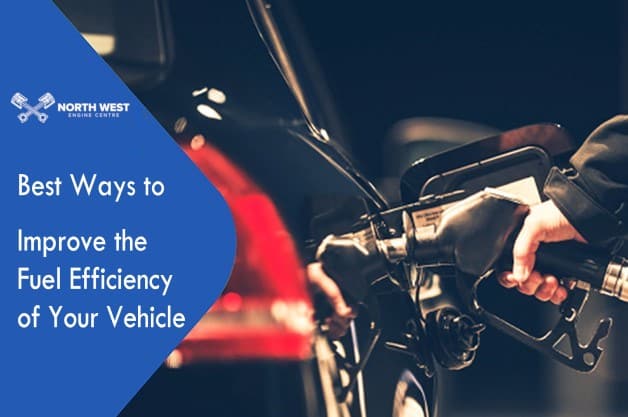
Fuel price fluctuations have always remained the number one concern for motorists. The rates are increasing so fast that every car owner tries to make the most of every litre. In fact, most people are trying to exchange their luxury cars with smaller fuel-efficient models. However, you can save fuel on your current vehicle as well. The way we drive makes a great difference in the fuel economy. If you really want to save me extra pounds by the end of every month, here are a few proven ways to increase your vehicle’s fuel economy.
Reduce Weight
The more weight a vehicle is carrying around, the more it will need fuel. Every 100 pounds will cost you a 1% to 2% increase in your vehicle’s fuel demand. So, it is better to lighten up the back of your car from the heavy tool kit and the golf set. Anything that weighs more, and is not in use should be removed to experience the difference in fuel efficiency. Another great idea is to remove any unnecessary part of your vehicle and find lightweight substitutes. For example, you can replace the heavy rims with a lightweight alternative or replace the unused seats and roof rack. Also, try to leave the tank a bit empty can reduce 8 pounds per gallon. The lighter the car is, the better its fuel efficiency will be.
Keep It Maintained
While it may be a very common tip, it can do wonders. Many car owners are still not aware of the importance of car maintenance. Keeping your car well-maintained and tuned up on time will not only save on the fuel but also the untimely repairs. Make sure you follow the maintenance routine according to the owner’s manual. Minor maintenance checks such as oil change, oil-filter check, spark-plugs, brake checks, and more can boost your car’s performance that will ultimately boost fuel efficiency.
Keep A Track
Keeping a track of your fuel usage history and the current mileage your engine is giving can tell you a lot about the condition of your vehicle. A sudden rise in the fuel demand of your car indicates that there is some trouble with the engine. If you don’t keep a track, you won’t be able to diagnose any issue that can escalate further. For fuel record keeping, note the odometer reading time and again and the number of gallons you get with every refill. This will help you save all information on the fuel purchase so that you can compare the total amount spend on fuel with the previous months.
Regular Cleaning
When we talk about car maintenance, we mean taking care of your vehicle completely. Polishing the exterior of the car, and keeping oil changes updated isn’t enough. Not only the exterior of your vehicle needs to look clean and shiny, but internal components also need regular maintenance. Clogged filters and fuel injectors, dirty air pumps, and greasy engine parts can affect the performance of the engine as well as decrease the fuel-efficiency. Regular filters and fuel injector cleaning can keep your engine going for a long-time without any trouble.
Avoid Idling for More Than a Minute
One of the major mistakes that motorist often do without realizing is driving their vehicles at idle. Driving your car at idle roughly consumes almost one gallon of fuel per hour. Along with that, it also releases more carbon dioxide in the air, which means it isn’t an eco-friendly way to be on the road. Modern vehicles are more fuel-efficient because on the auto diesel engine turn on and turn off the feature. If you are driving an old car, make sure you don’t drive at idle for more than one minute.
Optimal Tyre Pressure
If you are driving with optimal tyre pressure, it reduces the amount of drag your car has to undergo. This creates a significant difference in the fuel consumption of your vehicle. Tyres that feature low-rolling-resistance can improve your vehicle’s fuel mileage up to 10%. Make sure the pressure in the tyres is balanced. Under-inflated or over-inflated tyres are one of the main reasons that increase the cost of your car’s fuel.
Plan Every Trip
This tip isn’t any rocket science. If you are doing your best to keep your vehicle maintained and keeping all the fuel record, this one might help. When you are planning to go on a newer and longer route, make sure you check the short cuts as well as the possible traffic areas to avoid. This can help you in using less fuel and reach your destinations easily.
Use The Right Type of Fuel
A common notion about the type of fuel is that super-fuel or high-performance fuel should be used. Both types of fuels are high-octane. Super fuel has a 98 octane rating while other standard brands have usually 95 octane rating. Check your car’s manual to check if you can use standard fuel, otherwise, go for high-octane fuel.